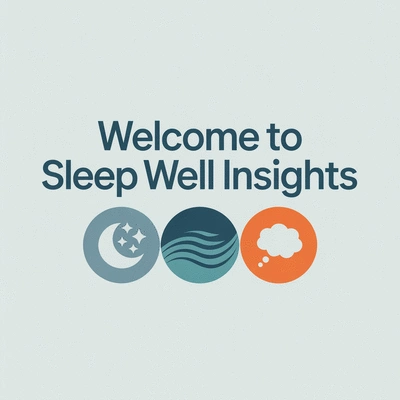As you navigate the complexities of insomnia, understanding your options can empower you to reclaim restful nights. The journey begins with recognizing the factors that disrupt your sleep and exploring potential solutions, from lifestyle changes to medical interventions.
What You Will Learn
- Insomnia is not just about difficulty falling asleep; it also includes trouble staying asleep and waking too early.
- Identifying emotional stress, lifestyle choices, and medical conditions as common triggers of insomnia can help in addressing the issue effectively.
- Prescription sleeping pills can enhance sleep onset, extend sleep duration, and improve sleep quality, but should be used with caution.
- Weighing the pros and cons of prescription sleeping pills is essential for making informed health decisions, considering risks such as dependency and side effects.
- Engaging in open discussions with healthcare providers about sleep challenges and treatment options can lead to personalized solutions for better sleep.
Understanding the Pros and Cons of Prescription Sleeping Pills
Delve into the key advantages and disadvantages of using prescription sleeping medication for insomnia, along with crucial considerations for an informed decision.
Pros of Prescription Sleeping Pills
- Quick onset of sleep
- Improved sleep quality
- Effective for acute insomnia
Cons of Prescription Sleeping Pills
- Risk of dependency
- Potential side effects
- Possibility of withdrawal symptoms
Key Considerations
- Individual health factors
- Age
- Combining with behavioral therapies
Actionable Next Steps
- Honest self-assessment of sleep patterns and concerns
- Discuss specific benefits and risks with a healthcare provider
- Inquire about alternative therapies and lifestyle changes
Understanding Prescription Sleeping Pills and Insomnia
Insomnia can feel like a dark cloud hovering over our daily lives, leaving us feeling drained and distracted. Defining insomnia is crucial, as it encompasses more than just difficulty falling asleep; it includes trouble staying asleep and waking up too early. The impact of insomnia can ripple through your entire day, affecting your mood, productivity, and overall health. In my experience as a sleep health advocate, many people underestimate how much their poor sleep affects their daily life and well-being. For a comprehensive look at sleep difficulties in adults, the CDC's data brief on sleep difficulties provides valuable insights into prevalence and demographics.
There are numerous causes of insomnia, ranging from stress and anxiety to medical conditions and lifestyle choices. Recognizing these triggers is the first step toward reclaiming restful nights.
Defining Insomnia: Causes and Impact on Daily Life
Understanding the underlying causes of insomnia is key to addressing it effectively. Common factors include:
- Emotional Stress: Anxiety and depression can keep our minds racing, making it hard to settle down at night.
- Lifestyle Choices: Irregular sleep schedules, excessive screen time, and caffeine consumption can all disrupt our natural sleep patterns.
- Medical Conditions: Chronic pain, respiratory issues, and hormonal changes can also interfere with sleep.
The consequences of insomnia extend beyond fatigue. It can lead to poor concentration, increased irritability, and even serious health conditions over time. Understanding how these factors impact your life can help you take proactive steps toward better sleep.
How Prescription Sleeping Pills Work to Alleviate Insomnia
Prescription sleeping pills are designed to assist individuals struggling with insomnia by promoting sleep onset and improving sleep quality. These medications work in various ways:
- Enhancing Sleep Onset: Many sleeping pills help you fall asleep faster, allowing for a more restful night.
- Extending Sleep Duration: Some medications can help maintain sleep throughout the night, reducing wakefulness.
- Improving Sleep Quality: Certain pills may enhance the deeper stages of sleep, leading to a more restorative experience.
While they can be effective, it's essential to approach these medications with caution and under medical supervision. After all, the goal is to improve your sleep without creating dependency or other side effects! The FDA provides important safety information for patients and providers regarding sleep disorder sedative-hypnotic drugs, highlighting the need for careful consideration.
Interactive Poll: Share Your Thoughts!
Have you ever considered using prescription sleeping pills as a solution for your insomnia? We'd love to know your perspective:
Summarizing the Pros and Cons of Prescription Sleeping Pills
As we explore the complex world of prescription sleeping pills, it’s essential to weigh the pros and cons. Understanding both sides can help you make a more informed decision about whether these medications are the right choice for you. In my experience at Sleep Well Insights, I’ve seen how these pills can provide relief but also come with challenges.
On one hand, prescription sleeping pills can offer quick relief for those struggling with insomnia. They may help you fall asleep faster and improve your overall sleep quality. However, it's crucial to recognize that there are potential downsides associated with their use. Let's break this down.
- Pros: Quick onset of sleep, improved sleep quality, and effective for acute insomnia.
- Cons: Risk of dependency, potential side effects, and the possibility of withdrawal symptoms.
- Considerations: Individual health factors, age, and the importance of combining with behavioral therapies.
By evaluating both the advantages and disadvantages, you can better understand if prescription sleeping pills align with your personal health journey.
Making an Informed Decision: Should You Consider Sleeping Pills?
Deciding whether to use sleeping pills is a significant choice that requires thoughtful consideration. At Sleep Well Insights, I encourage individuals to reflect on their unique sleep challenges and lifestyle before making this decision. Here are some guiding questions to consider:
- Have you tried other methods for improving sleep, such as relaxation techniques or behavioral therapies?
- Are your sleep issues affecting your daily life and mental health?
- Have you discussed your symptoms with a healthcare professional?
These questions can help you and your healthcare provider evaluate the need for medication versus non-pharmaceutical options. Remember, every person’s experience with insomnia is different, and what works for one may not work for another! For those interested in alternative therapies, the National Center for Complementary and Integrative Health offers information on sleep disorders and complementary health approaches.
Next Steps: Discussing Options with Your Healthcare Provider
Once you've weighed the pros and cons, the next step is to have an open dialogue with your healthcare provider. Communication is key! Here are some tips for making the most out of your conversation:
- Be honest about your sleep patterns, concerns, and past attempts at treatment.
- Ask about the specific benefits and risks of the medications you’re considering.
- Inquire about alternative therapies or lifestyle changes that could complement your treatment.
This discussion is crucial in ensuring that you receive a personalized approach to managing your insomnia. Trust me, taking this step can empower you to make choices that can lead to restful nights and rejuvenated days.
Frequently Asked Questions About Prescription Sleeping Pills and Insomnia
- What is insomnia?
- Insomnia is a sleep disorder characterized by difficulty falling asleep, staying asleep, or waking up too early, leading to non-restorative sleep. It affects daily functioning, mood, and overall health.
- What are common causes of insomnia?
- Insomnia can be caused by various factors, including emotional stress (anxiety, depression), lifestyle choices (irregular sleep schedules, excessive screen time, caffeine), and underlying medical conditions (chronic pain, respiratory issues, hormonal changes).
- How do prescription sleeping pills work?
- Prescription sleeping pills typically work by enhancing sleep onset, helping individuals fall asleep faster; extending sleep duration, to reduce wakefulness throughout the night; and improving sleep quality, by promoting deeper stages of sleep.
- What are the main pros of using prescription sleeping pills?
- The primary advantages include quick onset of sleep, improved sleep quality, and effectiveness in treating acute insomnia, offering rapid relief for those struggling to sleep.
- What are the main cons and risks associated with prescription sleeping pills?
- Potential downsides include a risk of dependency, various potential side effects, and the possibility of experiencing withdrawal symptoms when discontinuing use.
- What should I consider before taking sleeping pills?
- Key considerations include individual health factors, age, and exploring the benefits of combining medication with behavioral therapies like cognitive behavioral therapy for insomnia (CBT-I). It's also important to have a full discussion with your healthcare provider.
- How can I make an informed decision about using sleeping pills?
- Before deciding, consider if you've tried other sleep improvement methods, how your sleep issues impact your daily life, and if you've discussed your symptoms with a healthcare professional. This helps evaluate whether medication or non-pharmaceutical options are best for you.
- What should I discuss with my healthcare provider about insomnia treatment?
- Have an open and honest conversation about your sleep patterns, concerns, and past treatments. Ask about specific benefits and risks of medications, and inquire about alternative therapies or lifestyle changes that could complement your treatment plan.
Recap of Key Points
Here is a quick recap of the important points discussed in the article:
- Understanding Insomnia: Insomnia is not just difficulty falling asleep; it includes trouble staying asleep and waking up too early, significantly impacting daily life.
- Identify Causes: Common causes include emotional stress, lifestyle choices, and medical conditions. Recognizing these triggers can help in addressing insomnia effectively.
- Prescription Sleeping Pills: These medications can enhance sleep onset, extend duration, and improve quality, but they should be used cautiously and under medical supervision.
- Weighing Pros and Cons: While sleeping pills can provide quick relief, potential downsides include dependency and side effects. Consider individual health factors before use.
- Informed Decision Making: Reflect on your sleep issues and discuss options with your healthcare provider to choose the best approach for your unique situation.









